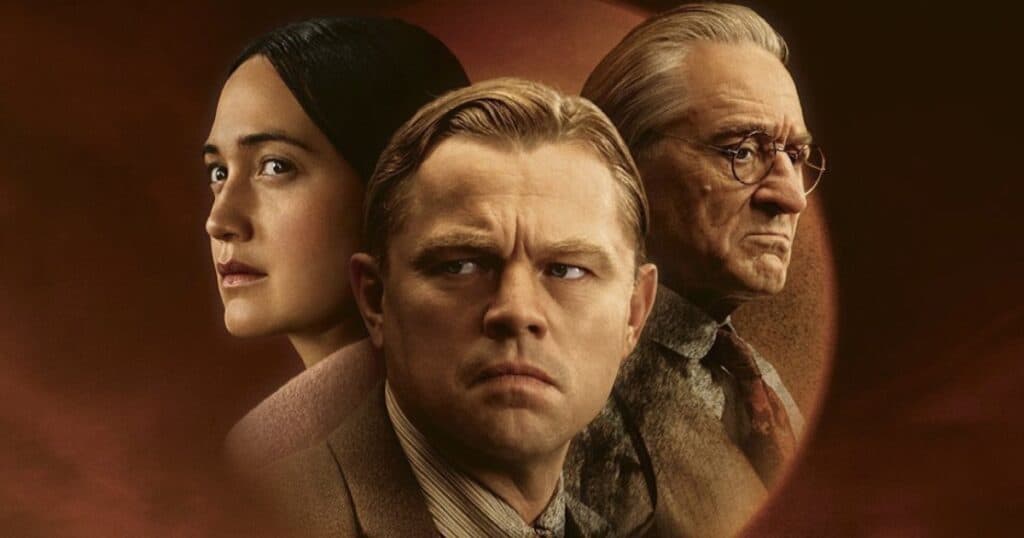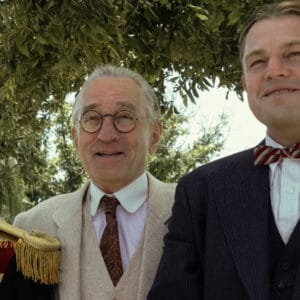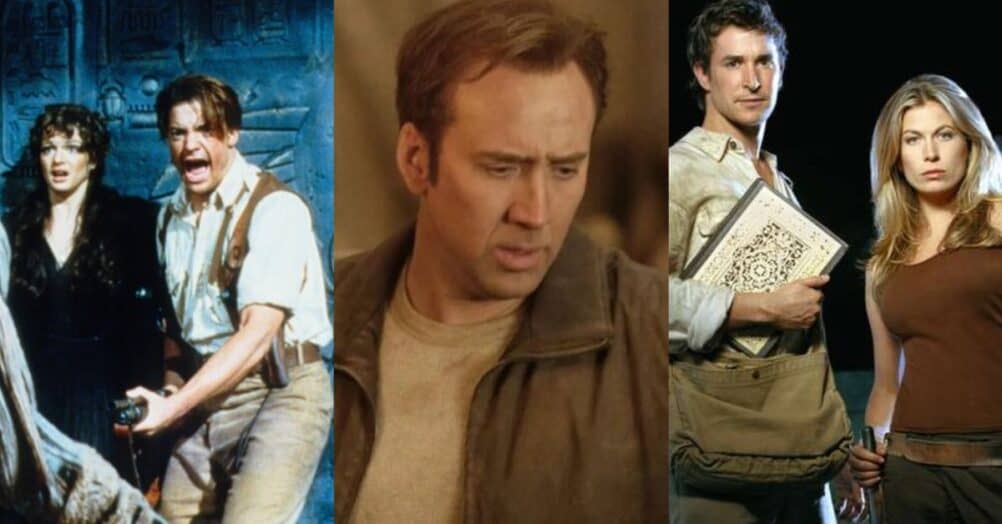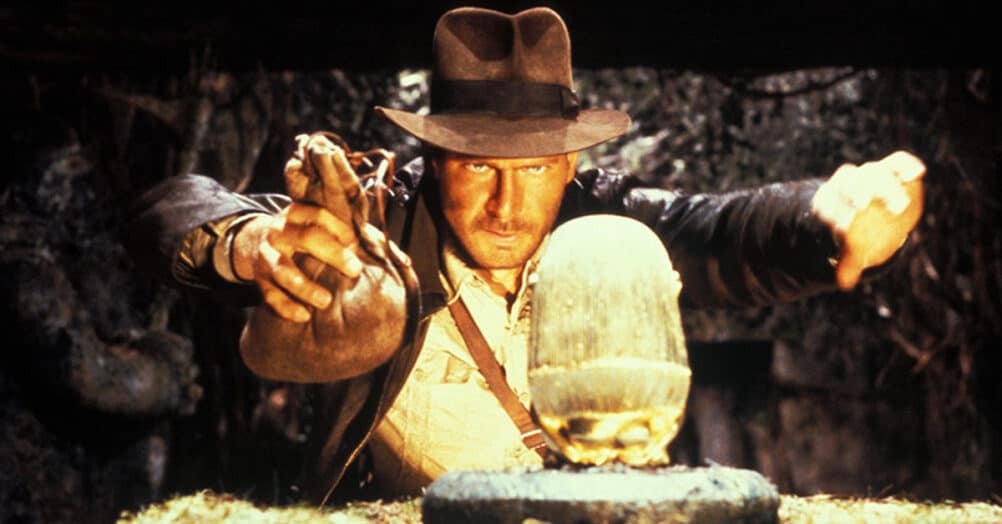Last Updated on June 28, 2024
Set in 1920s Oklahoma, Martin Scorsese’s epic Killers of the Flower Moon shined a light on one of the lesser-known dark chapters of American history – the wholesale slaughter of dozens of members of the Osage Indian Nation by their supposed guardians, neighbors and friends. A dramatic gut-punch of a film, it was adapted by Scorsese and Eric Roth from the 2017 David Grann book of the same name. The book took about five years to research, and the film took just as long to arrive on the big screen, with both taking great pains to authentically communicate the tragic nature of the Osage murders. While the film obviously takes a handful of liberties necessary to dramatize Grann’s book, by all accounts it’s an incredibly faithful telling of the story, accurately recreating the book’s major events as realistically as possible. Let’s take a look at What Really Happened to Killers of the Flower Moon.
Right from the start, Flower Moon gets right just about every aspect of what the Osage Nation went through, starting with their unexpected discovery of oil underneath what was supposed to be worthless land. As depicted in the film, the Osage were the wealthiest people in the entire country then; collectively worth about $30 million at the time, which would be about $400 million in today’s dollars. They hired white people to be their servants and chauffeurs and spent their money freely – when they were allowed to. The U.S. government deemed the Osage people unfit to look after their own funds, so they were often assigned quote-unquote guardians to help them with their money. These so-called guardians were usually local lawyers and businessmen, and they were known to help themselves to the Osage fortune as long as they didn’t get caught. Sadly, plenty of them weren’t content to stop at simple theft, eventually graduating to murder, killings committed with such heartlessness that Scorsese’s movie didn’t need to embellish any of the facts.
The film stars Lily Gladstone as Mollie Kyle, a full-blooded Indian and member of one of the more prosperous families in Osage County. As the film depicts, Mollie was eventually swept off her feet by WWI veteran-turned-taxi driver Ernest Burkhart, played by Leonardo DiCaprio. Burkhart was the nephew of William Hale, aka “King,” one of the wealthiest white businessmen in the county. Played by Robert De Niro, Hale was in his 50s during this time period while De Niro was in his late 70s during production, though surely no one really minds that slight discrepancy.
Hale’s considerable wealth didn’t stop him from kicking off what was eventually known as the “Reign of Terror,” a murderous scheme to inherit the Osage people’s money via any means possible. Scorsese’s movie accurately dramatizes these murders very accurately and frankly. For example, the bombing of Mollie’s sister Rita’s house, which ultimately killed three people; the slow poisoning of Mollie’s mother, Lizzie, and Mollie’s own subsequent poisoning by her husband, are all based in truth. There’s also the stunningly casual assassination of Mollie’s sister, Anna Brown, by her ex Byron Burkhart and his accomplice Kelsie Morrison. The film even goes so far as to stage the scene in a location eerily similar to where the actual shooting took place.

Kelsie Morrison features in the movie’s most morbidly amusing scene, when the man callously tries to figure out if he will inherit the incoming fortunes of his deceased wife’s children – assuming they die under mysterious circumstances. Shockingly, Morrison really did investigate this idea, although in a less cinematic manner: he wrote letters to William Hale asking his advice regarding how he could get his hands on the money the children were going to be inheriting, hinting that he could kidnap and presumably murder them.
When the murders became too obvious to ignore, the Osage implored white businessman Barney McBride to head to Washington D.C. to seek assistance from the government. But, just as the film depicts, McBride was assaulted soon after he got there and was found dead with a sack over his head after being severely beaten and stabbed.
Also featured in the movie is the sobering realization that just about the entire white side of the county was complicit in the murders in one way or another; the Shoun brothers were the local doctors and indeed played a major role in poisoning members of the Osage, specifically Mollie Burkhart with bogus insulin. When Mollie was able to get away from her confines, she gradually returned to health. Though it was clear Ernest was responsible for her poisoning, he never admitted guilt to this particular crime, though he did eventually cop to various other crimes, implicating his uncle in the process.
Since local law enforcement couldn’t be trusted and the reign of terror showed no signs of slowing down, the case of the Osage murders got to the FBI, then in its infancy. Director J. Edgar Hoover sent former Texas Ranger Tom White, played in the film by Jesse Plemons, to investigate the situation. Knowing he couldn’t trust the locals, White brought with him a handful of agents who went undercover in the county to find out everything they could. White and his agents ultimately apprehended many of the main assailants, including Hale, the Burkhart brothers, and Kelsie Morrison, but there’s little doubt that plenty of perpetrators walked free. In fact, the amount of Osage killed during the reign of terror has been a question that may never be answered, with the number ranging from 30 to 60 to maybe even 100. While Scorsese’s film doesn’t dramatize every one of those deaths, the ones he does spotlight are brutal enough to represent them all.




















Follow the JOBLO MOVIE NETWORK
Follow us on YOUTUBE
Follow ARROW IN THE HEAD
Follow AITH on YOUTUBE